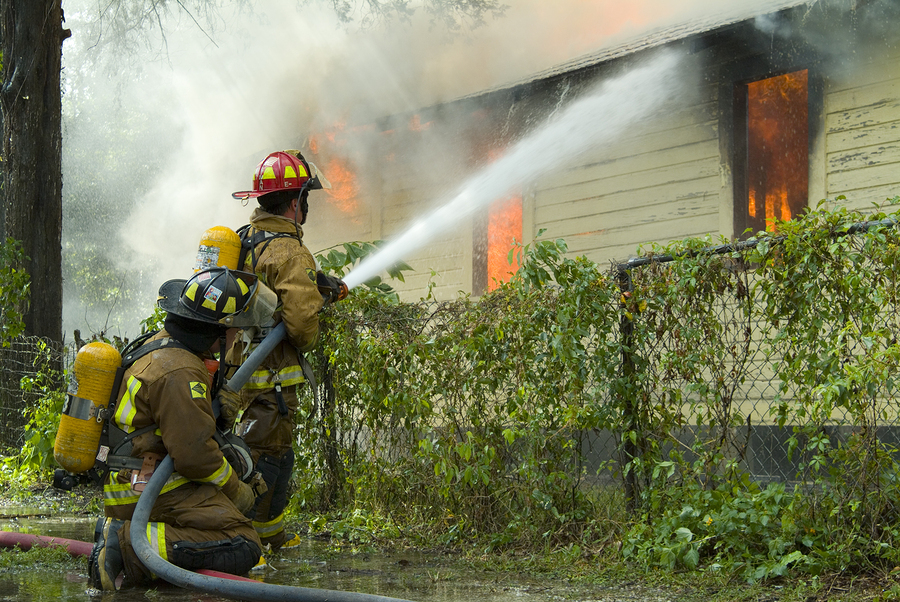
Grilling is one of those awesome warm-weather pastimes that give people the opportunity to not only enjoy delicious barbecued meat that’s been cooked over an open flame, but also to reduce your rental property to a smoking ruin.
While your rental property no doubt has fire insurance, it would be far more preferable if the structure didn’t catch on fire in the first place. That’s why you need to make sure that your tenants know the common sense rules for cooking outdoors.
Here are the basic points for outdoor grilling; you may want to assemble them into a list and make sure your barbecue-loving tenants are made aware of them!
Fire Extinguisher Availability
While it’s certainly not necessary to have a fire extinguisher right next to the grill in case of an emergency, it’s wise to not only have a fire extinguisher inside the dwelling but also to have it located in a prominent, easily accessed place. Furthermore, make sure it’s a Class B extinguisher, which is ideal for combustible gasses and liquids (like propane, for example).
Ease Up On The Lighter Fluid
If tenants are using charcoal grills as opposed to gas grills, then you have to deal with lighter fluid. The most important point to drive home is that the fluid is to be used on the charcoal BEFORE ignition. Spraying lighter fluid on an already lit grill may create impressive pyrotechnics that would make Beavis and Butthead proud, but it also runs the risk of fire riding right up the stream of fluid and exploding.
Move The Grill Away From Structures
The article “Educate Your Residents on Safe Grilling With These Helpful Tips” recommends that grills be set at least 10 feet away from any structures, including deck railings, house siding, and eaves. And of course, grilling should never be attempted indoors, even if it’s in a garage.
Gas Safety
Cooking with gas is awesome. You don’t have to wait for coals to get sufficiently hot. Just kick on the burners, let it warm up for a few minutes, and off you go. But gas is also a tricky thing to deal with. Would-be grillers should be on the lookout (smellout?) for gas leaks. Furthermore, the gas hose can get kinked up, or bugs can crawl into the assembly and disrupt fuel flow. Would-be grillers should make sure that the flow is unimpeded and the grill has a nice steady flame going. If there are problems, the grill knobs and the fuel tank should all be turned off, and the problem addressed immediately.
Grease Is The Word
Not only do you have the dripping fat from cooking meat causing the occasional flame-ups, constant grill use without cleaning it results in pools of flammable grease that can cause problems down the road. Encourage grillers to clean their equipment regularly.
Friends Don’t Let Friends Grill Drunk
Is there anything more awesome than being outside on a summer evening, steaks and burgers grilling, while you enjoy a beer? Or two? Or three? Whoa! Ease up there, Tex! If you’re dealing with fire, lighter fluid, charcoal, or propane, then you need a clear head. No one begrudges the backyard chef a tall cold one while overseeing the cooking duties, but all things in moderation.
Tenants and property owners alike would do well to exercise common sense and safety measures when handling fire. It not only prevents emergency room visits, it also guarantees that “burnt house” won’t be on the menu.














